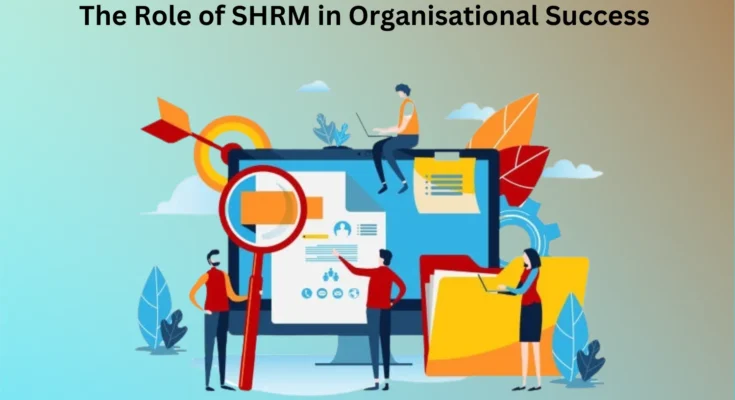The success of an organisation greatly depends on how well it manages its human resources. In this regard, Strategic Human Resource Management is essential because it helps businesses better match their HR practices with their long-term objectives. This methodology not only facilitates talent development within the company but increases overall effectiveness and production. Specialised HR Training Courses are becoming more and more relevant as businesses realise how important strategic HR practices are. This blog explores the vital role that SHRM plays in organisations.
Understanding Strategic Human Resource Management (SHRM)
Strategic Human Resource Management (SHRM) is a management approach that embraces every top-level, middle manager or minor worker to find the most suitable solution to every business challenge or opportunity. SHRM is distinguished from traditional HR, in which the latter works separately and reactively on the business’s strategic side. Unlike SHRM in the main corporate goals, it plays a highly integrated role in every aspect of business planning.
Key Functions of SHRM
Strategic Human Resource Management (SHRM) encompasses several critical functions that are essential for aligning HR practices with an organisation’s strategic objectives. Here is an overview of these key functions:
- Recruitment and Selection: Strategic recruitment is more than just filling positions; it’s about putting a long-term plan into action to identify candidates who will develop with the organisation and improve its operational and cultural dynamics.
- Training and Development: In SHRM, ongoing education and training are essential. Strategically designed HR training programmes guarantee staff members have the abilities and know-how to do their jobs well.
- Employee Engagement and Retention: By connecting employee goals with company objectives, SHRM creates an atmosphere that motivates and retains top talent, lowering attrition and boosting output.
- Performance Management: SHRM incorporates processes for performance management that ensure employee performance is tracked, assessed, and aligned with reaching strategic company goals. Setting explicit performance criteria, giving frequent feedback, and praising and rewarding excellent performance are all parts of effective performance management, as defined by SHRM.
- Pay and Benefits: One of SHRM’s most essential responsibilities is strategic pay management. This entails creating benefit plans and pay scales that attract and retain elite employees while also meeting the organisation’s financial constraints and strategic objectives.
- Workforce Planning and Analytics: Using workforce analytics, SHRM tracks current workforce data and projects future HR requirements. This strategic role assists firms in forecasting shifts in labour demand, matching workforce capabilities to requirements, and optimising employment numbers.
SHRM in Organisational Goals
SHRM defines the capacity to coordinate HR strategy with an overarching business plan. This alignment entails creating and implementing HR processes that improve the organisation’s ability to meet its objectives. For instance, if a business wants to improve innovation, SHRM will concentrate on finding creative individuals, encouraging an innovative culture, and teaching staff members to think creatively.
SHRM in Organisational Performance
Generally, companies that use strategic HR strategies perform better than those that don’t. SHRM impacts performance through the following:
- Talent Management and Acquisition: Proactively hire and keep skilled workers who can advance the business.
- Performance management: Matching individual performance indicators to business objectives guarantees that staff members are responsible and make the best possible contributions to the company’s aims.
- Learning and Development: Employees are guaranteed to be prepared to meet both present and future demands through targeted development programmes.
SHRM in Cultivating Organisational Culture
Long-term success depends on having a strong organisational culture, and SHRM has a big say in how these dynamics are shaped. Strategic HR efforts aid in establishing moral principles that promote cooperation, moral conduct, and a dedication to ongoing development. Employee loyalty and morale are vital elements of long-term organisational performance, and SHRM fosters a positive workplace culture.
SHRM in Change Management
When it comes to managing change inside an organisation, SHRM is crucial. To maintain employee motivation and attention throughout periods of change, SHRM offers techniques to manage transitions effectively, whether they occur because of mergers, acquisitions, or organisational. Under SHRM, efficient change management reduces interruption and preserves production.
Conclusion
It is indisputable that strategic HRM is essential to fostering organisational performance. By integrating HR strategies with business objectives, SHRM improves workforce management and adds to the organisation’s resilience and flexibility. SHRM is a critical tactic that can significantly impact an organisation’s success in the fast-paced, highly competitive current business climate. Businesses that understand and apply good SHRM practices can handle the market’s challenges and succeed in the long run.



